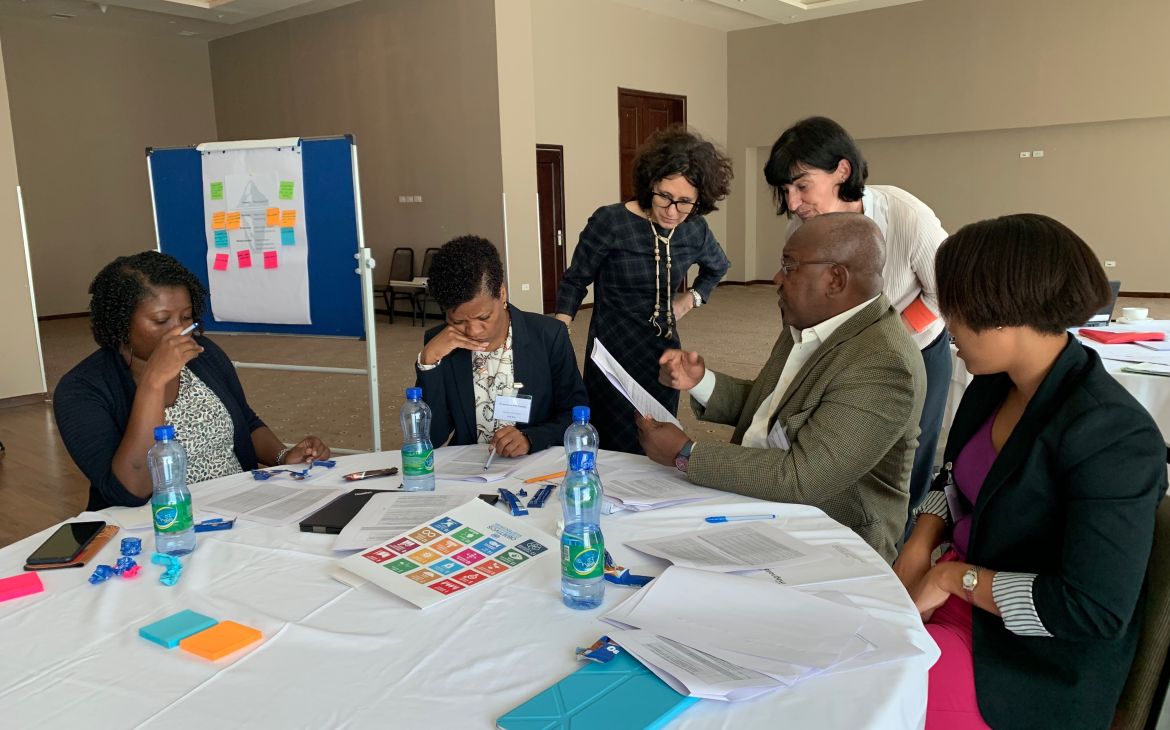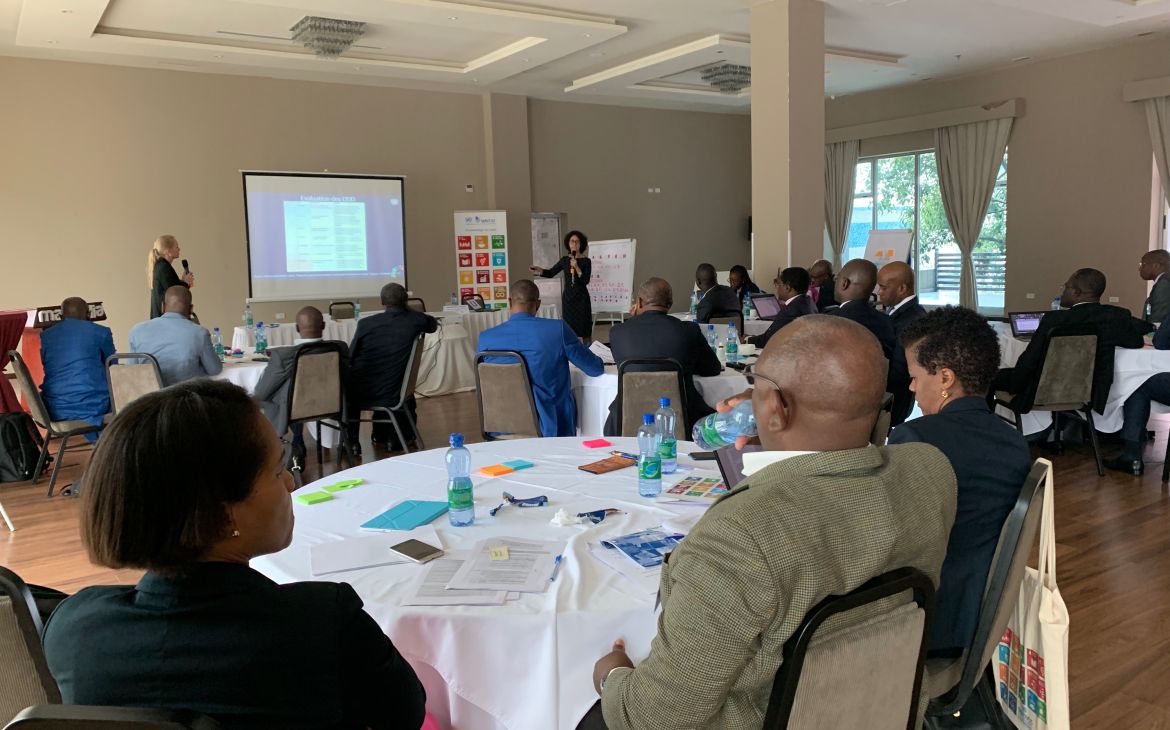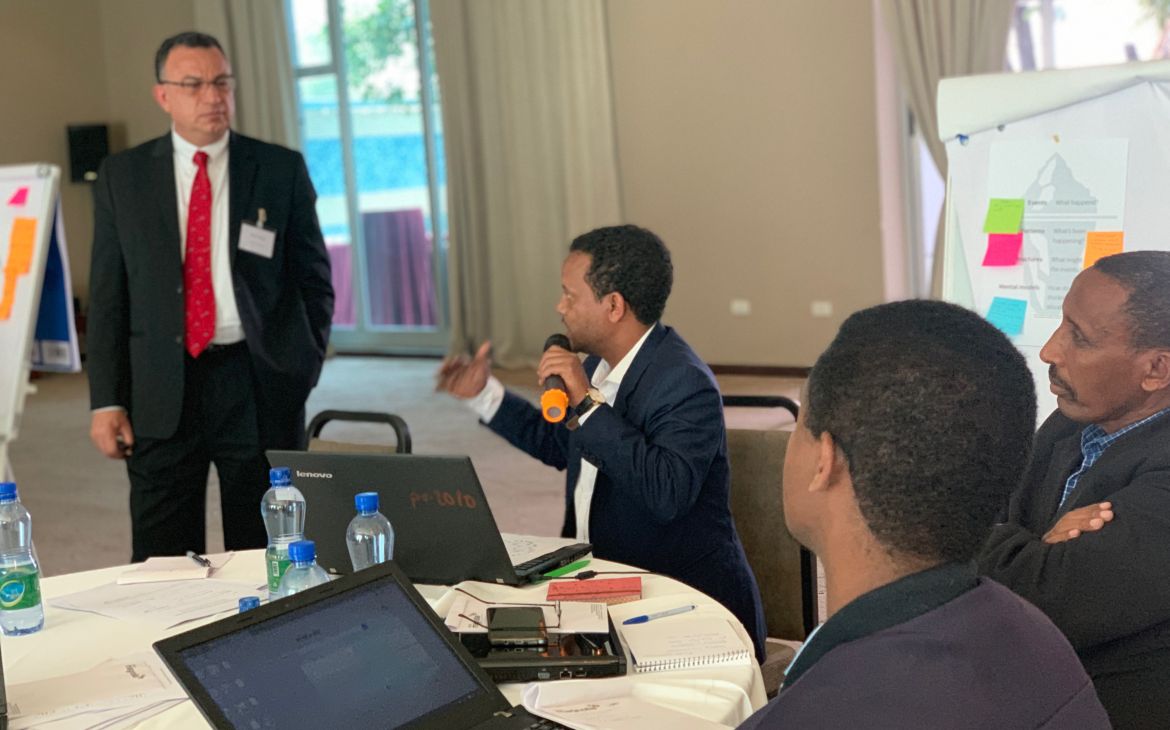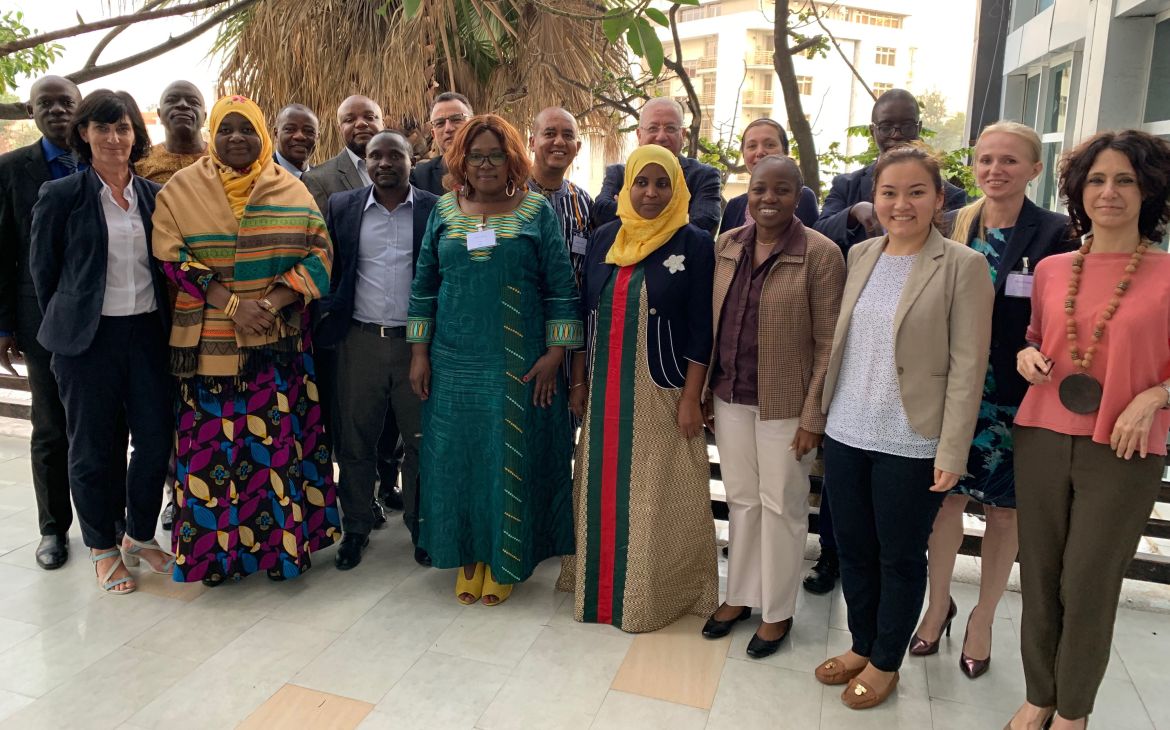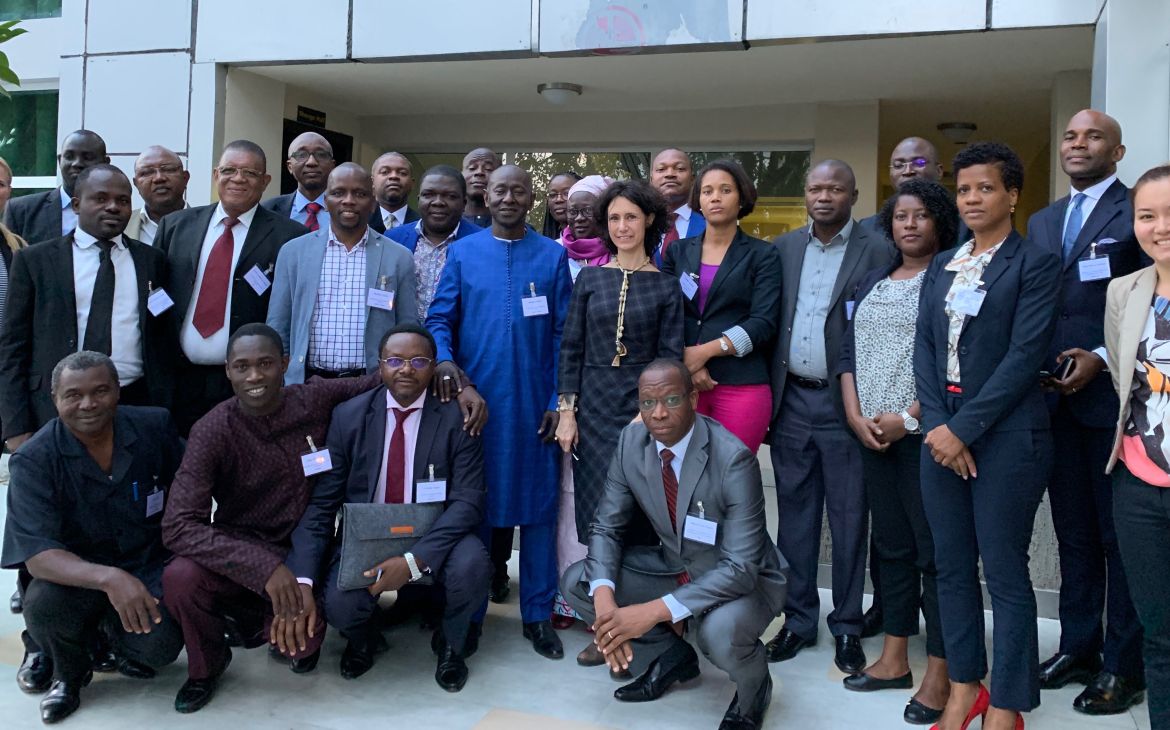On 20-21 June and 24-25 June 2019, UNITAR has joined forces with UNDESA’s Division for SDGs and Division for Public Institutions and Digital Government (DPIDG) as well as UNDP Regional Service Center for Africa to organize two regional workshops on “Integrated policies and policy coherence for SDGs in the African region” in Addis Ababa. The main objective of the workshops was to strengthen the capacities of senior government officials to apply systemic approaches to analyze the interactions between different SDG areas and to design integrated policies. An added objective was to roll out the new training toolkit developed by UNITAR and UNDESA and refine the latter based on the feedback from the pilots.
As a result of the workshop, 43 national stakeholders have been trained on system thinking and integrated analysis and policy design. 100% of workshop participants felt the workshops were useful, and 87% indicated an increased capacity to prioritize SDG work. The workshops were aimed at senior level representatives from Ministries of Planning, Finance, selected line ministries and public administration schools or academia from 10 countries: Liberia, Zambia, Tanzania, Ethiopia, Egypt, Senegal, Cameroon, Guinea-Bissau, Cabo Verde, and Togo.
Among key topics addressed during the workshops were the meaning of policy coherence, the application of system thinking to analyzing synergies and trade-offs between SDGs, the critical importance of institutional arrangements and meaningful stakeholder engagement for developing policy options and strategies for the achievement of the SDGs. Participants had a chance to learn how to assess their countries’ institutional readiness for the SDGs and to get familiar with a 5-step approach developed by UN Department for Economic and Social Affairs (UNDESA) proposing a qualitative, participatory approach to the analysis of SDG interactions, the development of coherent policy scenarios and formulation of integrated national strategies. UNDP has brought it its expertise related to the integrated national financing strategies, adjustments to M&E systems in the context of the SDGs, as well as to regional specificities in the area of national planning. One of the key discussions evolved around better understanding of how the proposed qualitative approach with an emphasis on participatory decision-making complements the work undertaken by some countries under MAPS, incl. quantitative modelling.
The workshops were designed as training sessions combining theory, practical exercises, case studies from participating countries, and elements of action planning allowing participants to analyze the applicability to their national context and take stock of key takeaways.
In autumn 2019, an additional evaluation will be conducted to assess the application of the newly acquired knowledge and skills by workshop participants in their professional contexts. In addition, the results of other workshops have allowed UNITAR and UNDESA to improve the training toolkit that will be next used jointly with ECLAC in the Caribbean region during an upcoming workshop for SIDS in Port of Spain in November 2019.


